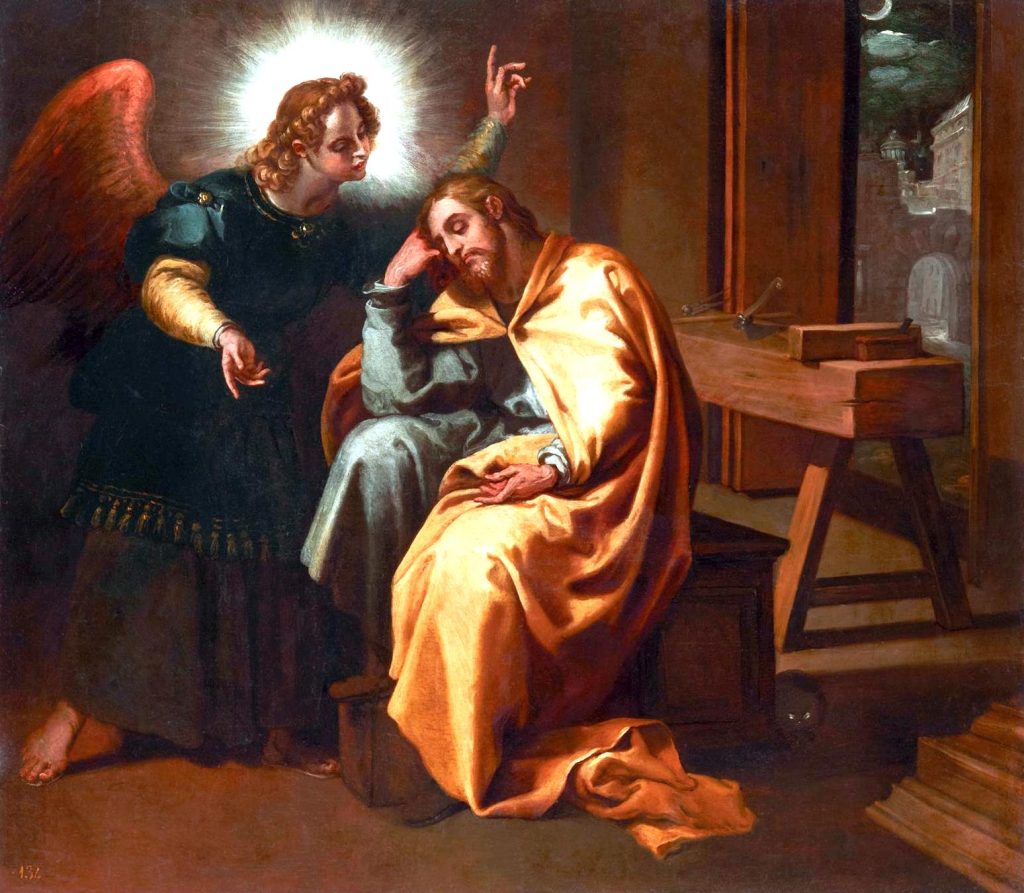For this week in our study of Matthew’s infancy narrative, we will be reading about Jesus’ conception and birth as recorded in Matthew 1:18-25.
Background:
Luke takes almost 100 verses to tell us of Jesus’ conception and Birth. Luke 1:5-2:20. Matthew’s story only gives us seven verses. Whereas Luke gives us Mary’s perspective on the events, Matthew only gives the perspective of Joseph. In all of the New Testament, we only hear Joseph’s voice in these few verses from Matthew.
Joseph’s Character:
Matthew begins his story by telling us that Mary was engaged to be married to Joseph, and before they came together, she was found to be pregnant. Matthew tells us the source of pregnancy, but Joseph does not know. Matthew does not tell how Joseph knew that Mary was pregnant. We do not know if Mary told him or if she began demonstrating the physical characteristics of her pregnancy. However, we do know Joseph’s eventual reaction, and what his reaction says about his character.
Matthew tells us that Joseph was a “just man” who resolved not to put Mary to public shame, but to divorce her quietly and privately by simply giving her a bill of divorce. The Greek word used to describe Joseph is dikaios which means someone who is legally observant or is righteous in the eyes of God or places his trust in God. In this act of mercy, we see a righteous man and we see the seed of a gospel life.
Like the Pharisees in John’s gospel (see, John 8:5) Joseph could have publicly accused her of adultery and had her stoned by the men of Bethlehem. (Lev. 20:10, Deut. 22:23). However, Joseph’s righteousness does not want to see Mary shamed or killed. Rather, Joseph simply wants to divorce her quietly and privately as provided for under the Law. (Deut. 24:21). What we see in Joseph is law tempered by love. The just man does not want the public retribution to which he may be entitled, he simply wants to minimize the harm to everyone.
The Angel:
An angel appears to Joseph in a dream and, like most angels, tells Joseph to “fear not.” The angel informs Joseph of how Mary became pregnant. The angel instructs Joseph to take Mary as his wife and instructs him on what to name the child. In these instructions, the angel is telling Joseph to become the husband and the father that he would have envisioned himself being before Mary’s condition was made known. The angel is telling Joseph to raise Jesus as his own.
The name “Jesus” means “The Lord is salvation” or simply “savior.” Unlike Luke (Lk 1:30-33), the angel in Matthew tells us specifically the type of savior Jesus is intended to be. Jesus is not a secular savior who will overthrow Roman oppression and reestablish a Jewish kingdom, rather Jesus “will save his people from their sins.” From the very beginning of Matthew’s gospel, we the audience understand the spiritual nature of Jesus’s life and teachings.
Emmanuel:
At the end of this section, Matthew tells us that all of this took place to fulfill the words of the prophet Isaiah that “Behold a virgin shall conceive and bear a son, and his name shall be called Emmanuel.” (See, Isa.7:14) The name Emmanuel simply means “God is with us.” By quoting Isaiah, Matthew is telling us, once more, who Jesus is – he is God with us. This idea of Jesus as God-with-us frames Matthew’s entire gospel. Matthew ends his gospel with Jesus giving the Great Commission. There Jesus says “Go forth and make disciples of all nations . . . and I am with you always.” (Matt. 28:20). In Jesus, God is with us – not only during his earthly life but even now.
Dinner is at 6:30. The menu is Caldo Gallego soup. Discussion about 7:15. Please let us know if you plan to join us.
“Joseph, son of David, do not fear to take Mary your wife, for that which is conceived in her is of the Holy Spirit; she will bear a son, and you shall call his name Jesus, for he will save his people from their sins.”
Matthew 1:20

